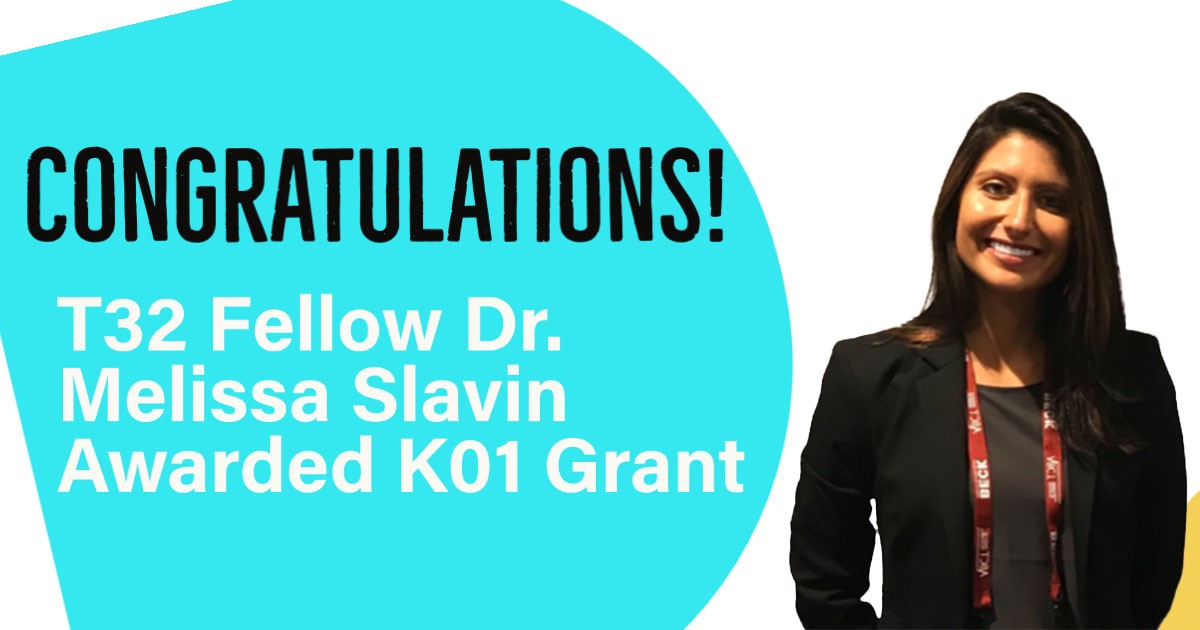Dr. Slavin will use her K01 award to address substance use disorders and unmet need for contraception among womxn involved in criminal legal systems.

A new study aims to reduce substance use and increase access to contraception among womxn involved in criminal legal systems by adapting an HIV intervention created by researchers at SIG, Multimedia Women on the Road to Health (WORTH).
Why Unintended Pregnancy Remains High Among Womxn Involved in Criminal Legal Systems with Substance Use Disorders
The population of womxn involved in criminal legal systems in the United States has steadily risen in the past 40 years. This is “largely fueled by drug offenses that stem from the ‘war on drugs,’” shared T32 post-doctoral Fellow and K01 award recipient Dr. Melissa Slavin.
A majority of these womxn are reproductive-aged and often face high rates of substance use disorders and unmet need for contraception since they are sexually active and not using any form of contraception. Many either do not want more children or wish to delay the next child but face synergistic individual-, interpersonal-, and community-level risk factors to accessing or using contraception. These risks include inadequate access to health services, a lack of social support, intimate partner violence, and low contraceptive self-efficacy.
Dr. Slavin cautions that the “Unmet need for contraception increases the risk of unintended pregnancy among this population, but these risks are not traditionally emphasized in HIV prevention interventions.”
While unintended pregnancy may not be a negative experience for some womxn, those involved in criminal legal systems with substance use disorders face multiple barriers that increase their likelihood of experiencing adverse consequences. These include delayed recognition of pregnancy, poor utilization of prenatal care, obstetric complications, postpartum depression and stress, and premature and low-birth-weight babies.
These risks may be further heightened among Black womxn who are overrepresented in criminal legal systems and face higher rates of pregnancy-related morbidity and mortality due to structural racism. As noted in a related SIG publication, Black womxn often experience “provider discrimination, racial inequities in access to treatment, residential segregation, segregated social and sexual network, racialized drug laws and mass incarceration.”
![“...Womxn involved in criminal legal systems with substance use disorders [have] an unmet need for contraception.” Also shows women behind bars in jail facility.](/sites/default/files/styles/cu_crop/public/content/T32PlacardMelissaQuote.png?itok=eDPItSfF)
Can a digital intervention address this unmet need for contraception?
Through her K01 award, Dr. Slavin shares that she plans to adapt and determine the feasibility and acceptability of a digital intervention that will include facilitated group-based treatment via videoconference, along with interactive activities for reproductive-aged womxn. Dr. Slavin shares “These womxn are all involved in criminal legal systems with substance use disorders and an unmet need for contraception.”
The original HIV prevention intervention, Multimedia WORTH, addresses the aforementioned barriers among womxn involved in criminal legal systems who use drugs, providing a platform to target the unmet need for contraception and treatment for substance use disorders.
For her K01, Dr. Slavin plans to “bring the voices of the womxn involved in criminal legal systems into my research through conducting qualitative interviews and mixed methods research.” This will inform the intervention by identifying strategies to address barriers and leverage facilitators to reducing drug use and using contraception. Dr. Slavin then plans to integrate this knowledge into Multimedia WORTH.
Community-engaged research is important to Dr. Slavin. “I will work with a community advisory board consisting of womxn with lived experience throughout the duration of my study who will serve as a liaison between the research team and the community. This will provide invaluable insight into community concerns and culturally relevant issues.”
The T32 program has helped me grow as a researcher by advancing my conceptualization of critical research issues and best methods for targeting them in a culturally tailored intervention, providing grant writing support, and helping me form meaningful relationships with key organizations and people with lived experience in the community.
How the T32 Training Program functions
The T32 training program, funded by the National Institute on Drug Abuse, provides both pre- and post-doctoral training. T32 is a joint initiative led by Columbia School of Social Work and the at the Mailman School of Public Health to train the next generation of pre- and post-doctoral scholars in the prevention, treatment, and care of HIV and drug abuse among individuals in the criminal justice system.
Of the program, Dr. Slavin shares,
“I am thrilled to be conducting this meaningful work and honored to have the support of my mentors and consultants at Columbia University including Drs. Nabila El-Bassel, Frances Levin, Gina Wingood, Brooke West, and Mingway Chang. The T32 program has helped me grow as a researcher by advancing my conceptualization of critical research issues and best methods for targeting them in a culturally tailored intervention, providing grant writing support, and helping me form meaningful relationships with key organizations and people with lived experience in the community.”
Congratulations to Dr. Slavin on her achievement.

